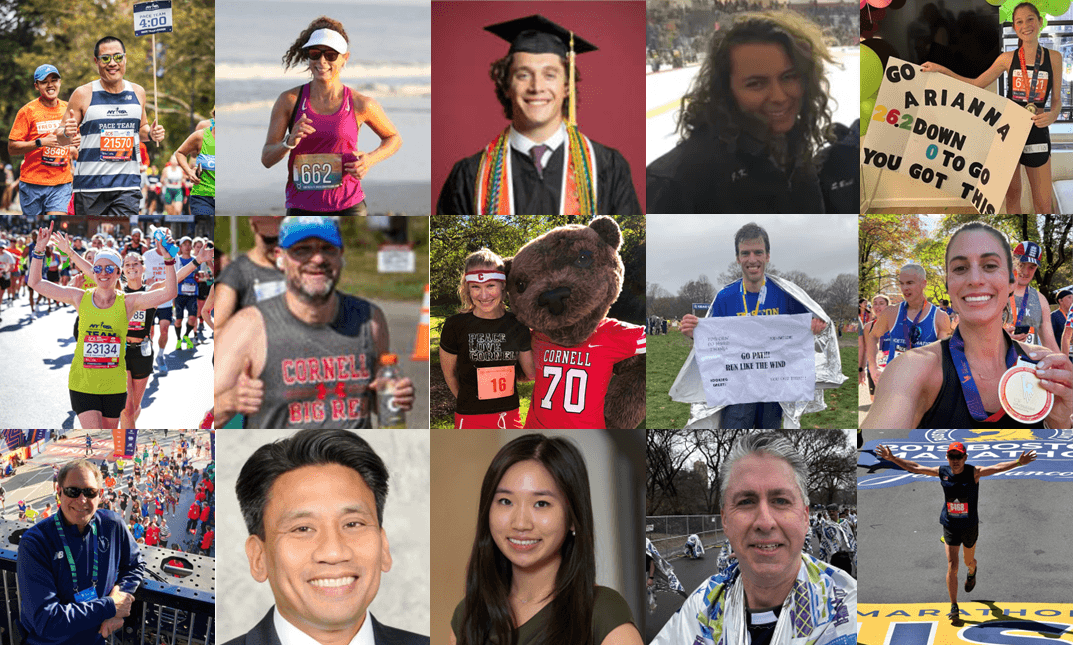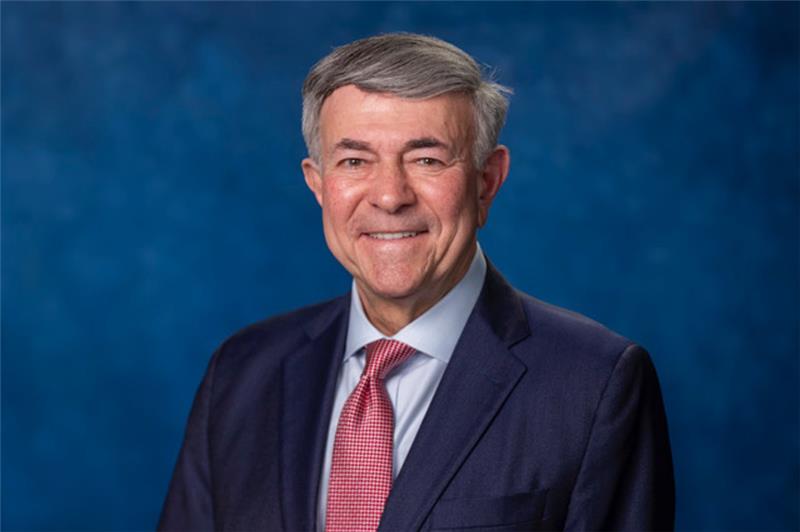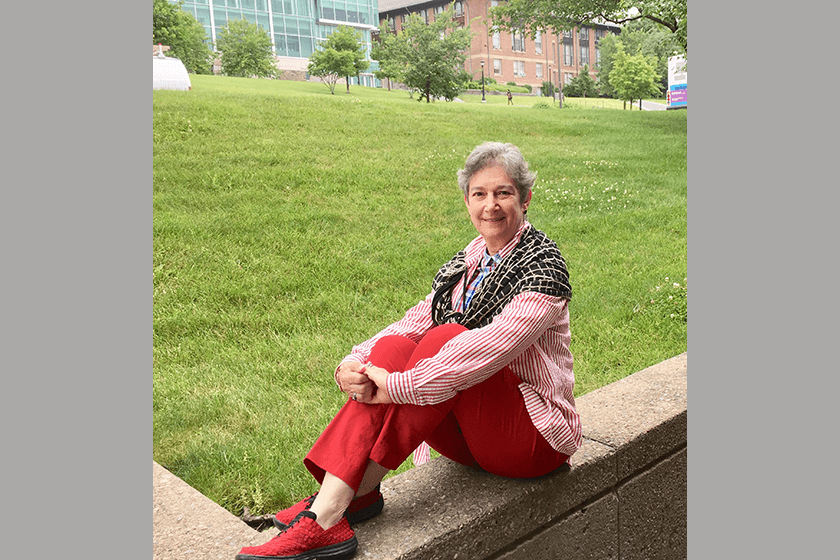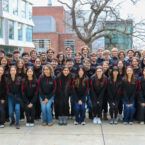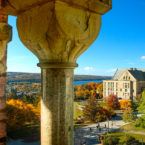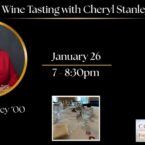Volunteer Erica Healey-Kagan ’05 sat down with Raymond Ortiz II ’04, MPA ’06, for a conversation about his volunteer experience, why he continues to stay involved, and what makes him care so much about the university that helped shape him.
Raymond’s alumni activities and positions:
- Member-At-Large, Cornell University Council (CUC)
- Volunteer, Cornell Alumni Admissions Ambassador Network (CAAAN)
- Director-At-Large, College of Agriculture & Life Sciences Alumni Assoc. (CALSAA)
- Director-At-Large, Cornell Association of Class Officers (CACO)
- Past Reunion Chair, Past Membership Chair, Class of 2004
Erica Healey-Kagan ’05: How did you find your corner of the university?
Raymond Ortiz II ’04, MPA ’06: I think my communities have mainly been the diverse communities, since I was an undergrad. Mainly the Black and Latino communities are where I was most active. With that said, that permeates through other communities, whether it’s the Greek community with my affiliation with Lambda Upsilon Lambda Fraternity, Alpha Chapter, as well as other Latino or Black based student organizations. I’d say that that was probably my niche area and likely still is, to this day, because I think representation is extremely important for students, for them to have a voice and also have a platform.
My time at Cornell, kind of similarly to what students are facing now, wasn’t always the greatest experience for folks of diverse backgrounds. There wasn’t a lot of advocacy and so these organizations, the administration that was able to help, really pushed us so that we could have a voice and be active in the community and be visible.
What was it like for people in your community, as a member of your class?
It was an interesting social climate, like I said, not too dissimilar from some of the things we’re seeing now. But I think it was still a time that we were, as a community, still fighting for certain resources. When you go to such a large institution and such a difficult institution, it’s hard to find your place, no matter what your background is, and I think that for diverse students, whether it be race, gender, ethnicity, sexual orientation, I think there’s always a barrier or learning curve to figuring out where you fit in. I think a lot of us, especially those of us that were student leaders, are also alumni leaders now. I don’t think it’s a surprise. But I think the common denominator is that we wanted to make sure we had representation.
Going to a school like Cornell, we know we have certain resources, we have certain privileges that we would have at Cornell versus being at other institutions or other schools. But I think what was important, particularly for me, was eventually becoming the type of person or the type of resource for students that I didn’t have. Yes, we had some alumni who plugged in, but, I think one of the great things about what we’ve done in our efforts as alumni is that we’ve gotten more people, particularly from the diverse communities, engaged to come back to lend a helping hand and to be there.
I have to say, during my time there, I didn’t feel that we really had that alumni presence. We didn’t have strong figures to look up to. I think a lot of the opportunities that were extended to me and they weren’t necessarily extended by people from the diverse communities because I didn’t really know anybody. And now that’s changing, now we have deep relationships with the students. My partner and I, we have a good pulse on the student body. We go in. We speak with them, and we become a resource. Ultimately my goal was to try to offer something that wasn’t readily available to me, to new students going through this process.
What is the biggest benefit to volunteering?
When I graduated undergrad, I was like, “I’m never coming back to Cornell,” but then two months later, I’m coming back for grad school, because that’s who accepted me. It’s interesting because one thing I always tell even current students, especially diverse students who are coming on asking some pretty heavy questions, I tell them that really the only regret that I have is that I was too deeply ingrained within the diverse communities that I didn’t really have time or put effort into being involved in the greater community. And that’s where the alumni experience has really kind of opened those doors. It’s never too late. We’ve all had similar experiences. The alumni groups have been an opportunity to bridge that gap, to really open up the experience and to see the university in full scope for what it is. And I think that’s really what the core of this is and why I think it is very important that we engage students, so that way they can see that there’s a pathway for them to be active alumni and that it’s not just like a good-old-boys society here.
My rise to being a class officer was an interesting story because I didn’t join my class officer group officially until our five-year Reunion. I had some friends that were on the board, and I helped with a couple of odds and ends here and there when they had requests. And then when the five-year Reunion came around, somebody reached out to me. I was membership chair for the next five years. And actually, it was a great experience overall because from that position, you get to understand how these class organizations work, where they fit within the whole structure of Cornell, and then you start to realize that this is just the tip of the iceberg and that there are just so many levels to alumni involvement. It was a great experience for me because it was an opportunity to learn, but also it was an opportunity to make an impact. It was a great networking opportunity for me because I got to catch up with old friends and also meet some new folks from the class.
What advice would you give to someone who is interested in becoming more engaged with the university?
I think that advice comes at two levels. If it’s a current student, especially an upperclassman who’s preparing for graduation, there’s no time like the present. It’s important for them to understand that there’s a pathway for them that they can get immediately involved with their class and other alumni activities. I think the start really is with class council. I think that’s an opportunity for people to be engaged. The scope of work is not so tremendous that it would be overwhelming for recent graduates who are just starting their career.
I think that’s what scares a lot of folks: the commitment, the time. It’s like, I just got out of school, I have this ton of debt, and now I have to figure out how to make things work. But the fact of the matter is that keeping these connections is beneficial. I think all of us have some type of story of how this has affected our career or social responsibilities and the things that we’re involved in. Encouraging students to get involved with their class council or with other activities as soon as possible after graduation is a plus.
My advice for more senior alumni is that Cornell was a home for you once, and it’s always going to be home for you. Being a resource for young students who are also going through their own issues, their own struggles, their own traumas—it’s a lot of pressure, it’s a lot of expectations. It’s good to be able to have alumni like us come back into the fold.
What is the tie that binds you to the university?
I think it’s really just my time. I had the privilege of doing two degrees at Cornell and I’ll tell you my undergraduate experience wasn’t a great one, because regardless of my involvement, I really didn’t know where I fit in or what I wanted to do with myself. But when I did the Masters in Public Administration and the CIPA program, it was a different experience. Professors treat you like you’re an adult. You don’t have the same pressures that you do as an undergrad to necessarily compete. It was more of an exploratory time for me. What I learned during that time was to appreciate all of my experiences at Cornell: the good, the bad, the ugly. Because that’s really where I grew up. I would say I became a man at Cornell University and I learned life skills that I carry with me every single day. It’s that appreciation for what I learned at Cornell that’s made me the person I am today. And that’s why I stay involved. Nothing’s perfect. But I do think we have a responsibility to ourselves, to our communities, to the university, to be a resource to help make a change for the better, because it doesn’t matter how good things are. They could always get better. And so that’s why I stay engaged.

